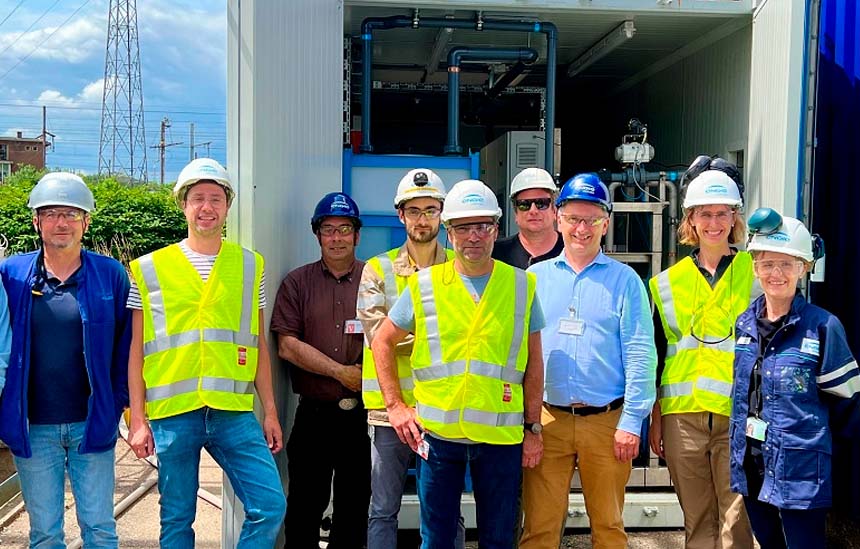Recently, the industry in general is looking for innovative ways to reduce water abstraction from the environment and reuse water as much as possible
The use of classic Reverse Osmosis (RO) for water production is today a very widespread technology. However, its operation is often associated with a low/medium water recovery rate ranging between 50 and 70% maximum. This means that out of 1000 litres abstracted from the environment only a portion between 500 litres and 700 litres is turned out into water for the process. This has a large impact on the quantity of water needed to reach a certain water production.
The innovative CCRO (Closed Circuit Reverse Osmosis) technology is of key interest. Indeed, it can allow a higher rational use of the water compared to classical Reverse Osmosis technology, reaching recovery rate as high as >95%, meaning that out of 1000 litres abstracted from the environment more than 950 litres is turned out into water for the process. The CCRO technology will therefore strongly limit the raw water uptake but also the waste generation and the chemical consumption. Moreover, CCRO technology can also be used in Thermal power plant for the production of ultrapure water, either as a retrofit of the existing unit or as a new build installation reducing the water need and improving the OPEX of the installation. Finally, CCRO could also be applied in seawater desalination plant to boost the potable water production thanks to its use after the SWRO (Sea water Reverse Osmosis) to increase the overall recovery rate.
A first test of the CCRO technology within ENGIE while comparing it with classical RO confirmed the potential added-values of this new CCRO technology for demineralized water production.
This 4 months pilot test was conducted at ENGIE’s Amercoeur power plant as part of the Columbus Project (an eFuel and hydrogen project which will use the same water source as the power plant. Commissioning of the Columbus project is planned for 2026). It has been conducted by Electrabel and Laborelec in partnership with Dupont Water and Nuoro.
Arnaud Boitte, Project manager water & chemistry – Laborelec : « The promising CCRO technology which brings new opportunities for the production of industrial water with a low environmental impact compared to classic reverse osmosis.”
Philippe Gelissen, Project Manager ENGIE Flexible Generation Europe : “It is interesting to be able to test in a real situation how these systems interact with the future water source of the project and to be able to compare the performance of the prototype installation with the more traditional installation used by the power plant. »
Bart Ghysels, expert water & chemistry – Laborelec : “ To produce 1 kg of hydrogen by water electrolysis we need 9 kg of ultra-pure demineralized water. We cannot change this ratio, which is a stoichiometric ratio. What CCRO technology allows is to reduce the environmental footprint linked to the production of demineralized water while reducing the consumption and discharge of chemicals.”
Korneel Caron, Business Development Manager – Dupont Water Solutions : “ CCRO technology is an advanced reverse osmosis technology that is known for its very high conversion rate and less scaling and fouling of the reverse osmosis membranes. This technology is special because it is a closed loop, so the concentrate is recirculated downstream of the system and treated with new water. The conductivity of the surface water of the Charleroi Brussels canal is very variable and the pilot will be able to adapt to the conductivity at any given time so that the permeate or water that is treated has the same quality all the time all year.”
This pilot in a real situation made it possible to definitively select CCRO technology as an alternative to industrial water production with a low environmental impact.

